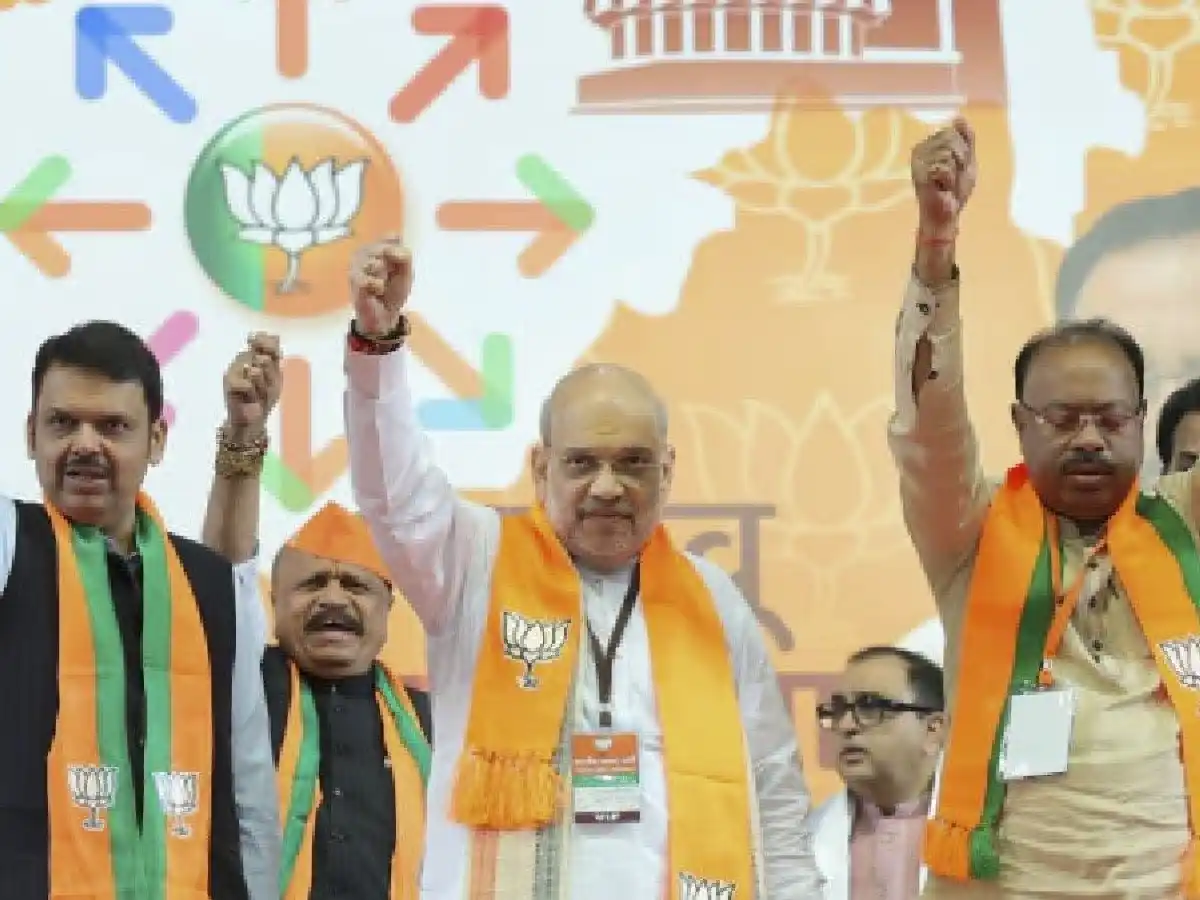The Maratha community has consistently held sway over Maharashtra’s politics, with all political parties attempting to gain favor from this group. However, on this occasion, the BJP has prioritized the OBC community over the Maratha during the entire election campaign. Understanding how the BJP accomplished this is crucial.
Prime Minister Narendra Modi stated at his election rallies in Maharashtra that the Congress is engaging in divisive politics and aims to set one caste against another through the caste census. The Prime Minister stated that the Congress is not interested in the advancement of the SC, ST, and OBC communities.
The Prime Minister remarked that the Congress is upset with the OBCs because, following the rise of Mandal politics, the OBC communities have come together, and the Congress is consistently declining; thus, the Congress aims to diminish the OBC community’s strength and disrupt their unity. Conversely, the opposition leader in the Lok Sabha, Rahul Gandhi, has persistently advocated for the rights and involvement of the OBCs in politics over the past few years.
Prime Minister Narendra Modi promoted the slogan ‘If we remain united, we are secure’, while former Uttar Pradesh Chief Minister Yogi Adityanath emphasized Hindu castes’ unity with ‘If we separate, we will be severed’.
In recent years, as the demand for Maratha reservation has intensified in Maharashtra, the conflict between the OBC and Maratha communities has also emerged prominently in the state. Following the Mandal Commission report, the OBC community received reservation, while the Maratha community is persistently seeking reservation. Recognizing the political influence of the OBC community in Maharashtra, various political parties backed reservations for the Maratha community but refrained from discussing the allocation of reservations to Marathas from the OBC reservations due to concerns about potential backlash from the OBC population.
The population of the OBC community in Maharashtra is 38%, while the Maratha community’s population stands at 33%.
Following the results of the Maharashtra Lok Sabha elections, it was reported that the BJP-led Mahayuti coalition faced political setbacks in the constituencies where the Maratha community holds sway.
BJP leader to The Indian Express In the discussion, he acknowledges that the Lok Sabha OBCs were upset with BJP during the elections. This was due to his belief that Eknath Shinde The Mahayuti government prioritizes Maratha reservation, as Manoj Jarange Patil is advocating for it. It appeared to favor the Maratha community, leading to a situation where both Maratha and OBC communities did not provide support in the end.
The BJP is doing everything possible to keep OBC voters, as the Lok Sabha election results indicated that the Maratha community is largely aligned with the Maha Vikas Aghadi (MVA).
A senior BJP official informed The Indian Express that OBC voters play a role in 175 of the 288 seats in Maharashtra, while the Maratha community significantly impacts Marathwada and Western Maharashtra, which together hold 116 seats.
In Maharashtra, a significant struggle is unfolding in Vidarbha to secure OBC votes, as OBC voters wield considerable influence in 36 of the 62 seats in this region.
Prakash Ambedkar, leader of the Vanchit Bahujan Aghadi (VBA), acknowledges that OBCs have come together in Maharashtra’s political landscape like never before. In an interview with The Indian Express, Prakash Shendge, the president of the OBC Forum, remarked that this struggle represents a quest for political involvement, uniting the OBCs, even as OBC voters are capable of casting their ballots across different political lines and beliefs.
BJP officials assert that, as a component of its strategy, the party is engaging with lesser-known and smaller caste groups within OBC, gaining advantages from this in the recent elections in Haryana. BJP gained from presenting its OBC representative Nayab Singh Saini in the Haryana assembly elections. Election experts in Haryana assert that OBC communities rallied together against Congress’s Jat representative Bhupendra Singh Hooda, leading to BJP’s victory in what was deemed a challenging election. BJP aims to replicate its success in Haryana within Maharashtra as well.
BJP’s initiative involves Vidarbha, North Maharashtra, where the OBC population is limited in Marathwada regions. The emphasis is on caste categories. It is crucial to recognize that leading up to the Maharashtra elections, the Modi government added seven new caste groups to the Central OBC list and established a Mahayuti. Additionally, the administration introduced a creamy layer for OBCs, a decision that was positively received by the OBCs. This step was seen as an effort to garner support from various communities. It was thought that elections were conducted in Haryana similarly. Just prior to this, Nayab Singh Saini had proposed raising the income threshold from Rs 6 lakh to Rs 8 lakh.
The OBC communities targeted by the BJP in Maharashtra encompass Teli, Banjara, Pawar, Bhoyar, Komati, Sonar, Gond, along with around twenty other castes.
In regions of northern and western Maharashtra, the Congress is also attempting to attract the Dhangar community, which is classified as OBC. The Dhangar community constitutes 9% of the OBC demographic. The Congress and NCP (Sharad Pawar) are reminding the Dhangar community about the BJP’s unmet pledge concerning the saffron party’s commitment to granting tribal status to their community.

